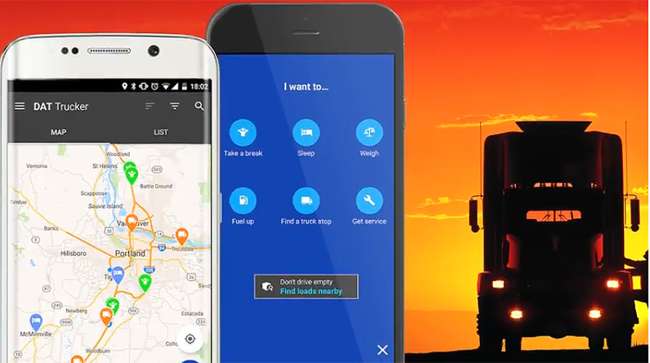Trucking Futures Exchange to Launch in Late 2018

DAT Solutions and TransRisk have signed a deal to launch a trucking freight futures market through Nodal Exchange in late 2018, a project first announced earlier this year.
The futures market would work a lot like commodities trading on the New York Mercantile Exchange, financially settling contracts on major freight lanes using the DAT Truckload Rate Index, the companies announced on Oct. 27.
TransRisk said the exchange will allow trucking companies, investors and shippers to hedge against the wild swings in spot market prices due to conditions such as hurricanes, wildfires and other natural disasters, seasonality, regulation and macroeconomics.
DAT is a leading operator in the spot freight marketplace in North America.
What's a trucking futures market? @Trans_Risk @LoadBoards & Nodal have a vision. https://t.co/qKl7RTQ186 — FreightWaves (@FreightWaves) October 30, 2017
“DAT and Nodal Exchange are ideal TransRisk partners to launch the first futures contracts for the trucking industry. DAT is considered the de facto industry standard, well established for its benchmark supply, demand and rate data for the truckload freight market,” said Craig Fuller, CEO of TransRisk, a data intelligence and financial products company serving the freight industry.
“We were highly selective in picking an exchange and clearing partner and wanted a firm that understood how to build a futures contract in a new market and had the internal resources to execute.” Fuller added.
Nodal Exchange is a regulated derivatives exchange providing price, credit and liquidity risk management solutions. Currently it offers more than 1,000 electric power and natural gas contracts.
Here’s how the trucking futures exchange would work: an investor would purchase the futures contract using margin, or borrowed money, putting down 5% to 10%. For example, if the contract were from Chicago to Dallas — about 1,000 miles — at a rate of $1.50 per mile, the contract would cost $1,500. The investor would make a down payment and borrow the rest of the money. If the final settlement price on the contract was $1.75 per mile, then the seller of the contract would pay off the loan and pay the investor the remaining sum. But if the final settlement price was $1.25 per mile, then the seller would pay the lender and the investor would be required to cover the rest.
Nodal Exchange, which grew its North American power trading volumes 97% in 2016, has over 28% market share of open interest as of Sept. 30.
“The recent hurricanes, on top of economic growth and abundant agricultural harvests led to nationwide supply chain disruption and caused dramatic market price fluctuation,” said DAT President Claude Pumilia. “The trucking freight futures contracts under development with TransRisk and Nodal Exchange will provide a broader risk mitigation solution for industry participants and investors, and are long overdue.”
Originally slated to launch this past summer, organizers felt that there wasn’t enough time to conduct an education campaign with motor carriers and shippers on how to use the exchange to hedge against uncertainty in the market. There was also a delay in signing the deal with Nodal Exchange, due to the company’s acquisition by EEX, an energy exchange in Europe that sells dry bulk maritime freight futures contracts.
Fuller has told Transport Topics that he envisions trucking companies with more than 200 trucks, large third-party logistics operations and commodity shippers trading on the exchange.
In October, Truckstop.com and FTR launched a similar idea called Rate Forecasting, a tool that projects spot market rates by balancing seasonal, geographic, random, economic, regulatory and permanent trends with deep statistical modeling. The forecast covers 160,000 lanes, state-to-state and zip code (by first three digits) as well as 6 million origin and destination pairs, according to Truckstop.




